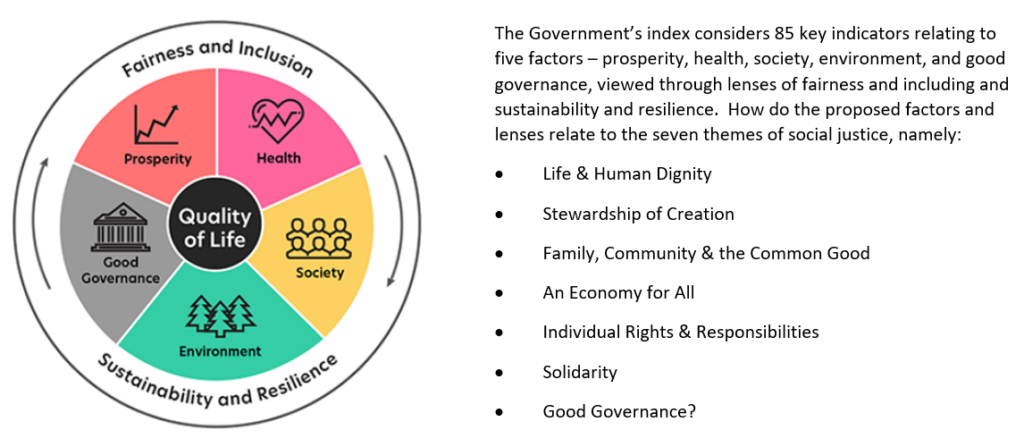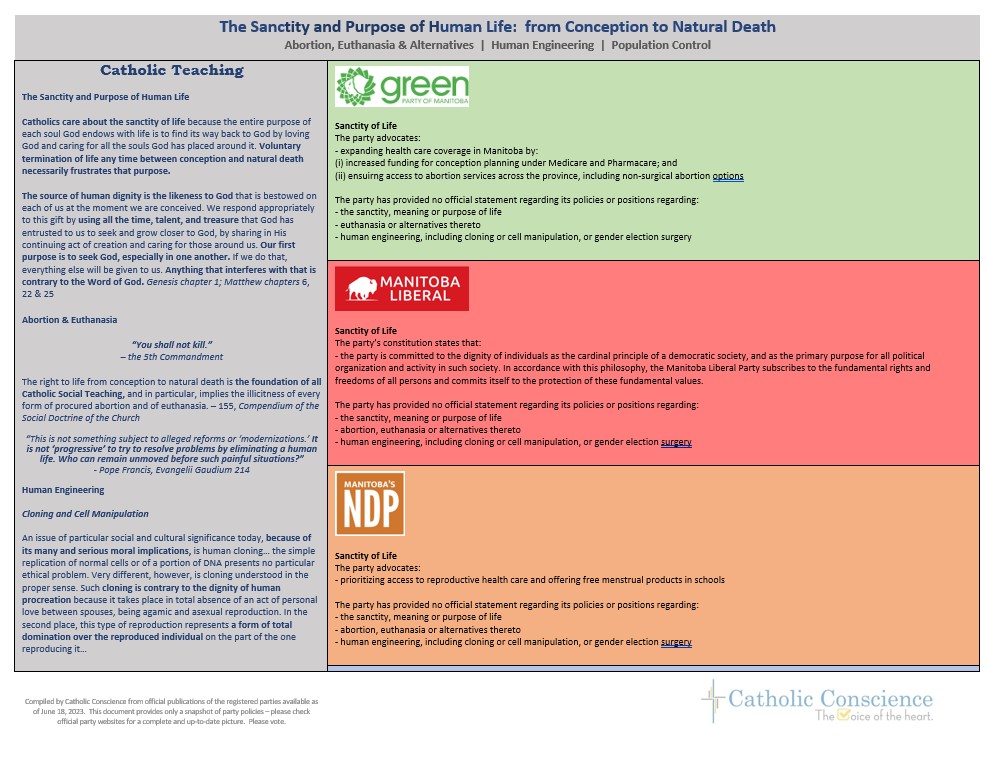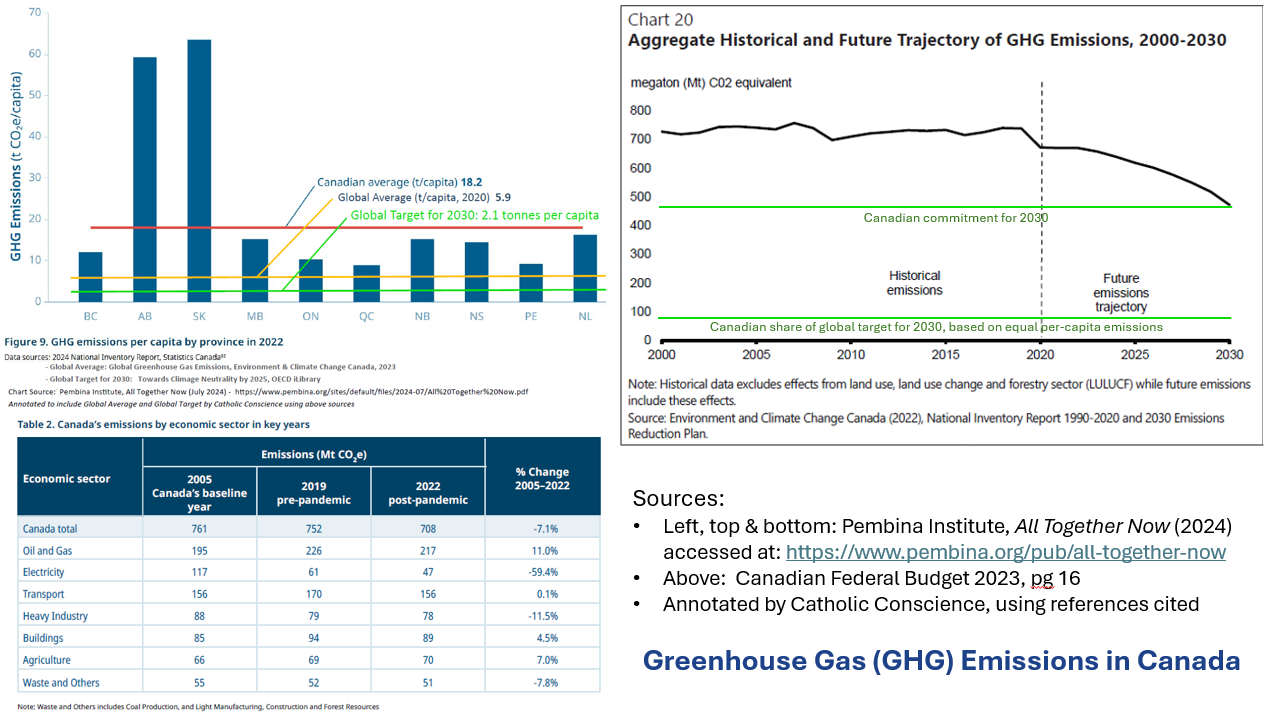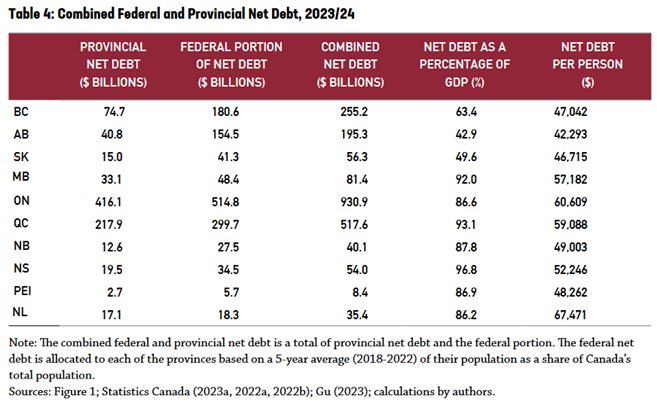Role of and Support for the Family
School Breakfast Program
The party states that:
– nutrition is essential for the learning and development of all children. But a significant number of students live in poverty in New Brunswick and lack access to sufficient food.
– food programs ensure students receive nutritious meals, yet programs designed only for those struggling create stigma and do not reach those who need it most.
– access to food is a fundamental right, and many families struggle to obtain sufficient quantities of quality food, leading to some students lacking access to a nutritious breakfast.
– free universal school breakfast programs provide students with an equal opportunity to start their learning day, improve health, well-being, and academic performance, and reduce absenteeism.
– New Brunswick’s current breakfast program is inequitable as it excludes schools with community involvement and is unfair to schools that already offer a similar program.
The party advocates:
– establishing and funding a free universal school breakfast program in all New Brunswick public schools, focusing on the needs of students living in poverty, ensuring that the provincial funding for such programs does not penalize schools that already have breakfast programs run by volunteers or with community funding.
Health Care & Elder Care
The party states that:
– citizens of New Brunswick continue to face significant challenges in accessing timely and quality healthcare services, leading to increased frustration, potential health decline, increased complications, rising future costs, and concerns about the overall well-being of the population.
– strains on the healthcare system have been exacerbated by factors such as a growing and aging population, increased prevalence of chronic diseases, and persistent pressures arising from health-related crises, placing an immense burden on healthcare providers and facilities.
– widespread dissatisfaction among residents is creating a pressing need for targeted reforms that address both immediate issues and long-term sustainability.
The party advocates:
– establishing a Provincial Health Plan that serves as a framework and guide to improve and enhance the state of the Healthcare system, informed by data and people’s lived experience, detailed with population health needs projections for up to 30 years including clear goals and an accountability framework, to ensure sensible system design, organization, operation, and resource use, and performance standards at the primary, secondary, and tertiary levels of care, including components for Primary Care, Rural Care, Acute Care, Long Term Care, Addictions and Mental Health Care, and Epidemic/Pandemic preparedness.
– establishing both immediate-term measures to alleviate immediate pressures to prevent system collapse, as well as medium- to long-term strategies to shape the healthcare system for the future.
– implement such Provincial Health Plan while applying a diversity, equity, and inclusion (DEI) lens across the system, acknowledging and recognizing the significance of all communities living within its borders, including Indigenous, Newcomers, and both social linguistic communities.
– establishing a public education and awareness protocol, highlighting the benefits of new measures and ensuring stakeholders and the public are informed well in advance of any changes in healthcare service delivery while including meaningful community engagement as a fundamental component of change management processes
Healthcare Governance
The party stats that:
– the health and well-being of New Brunswick citizens are of paramount importance, and a robust healthcare governance model is essential to achieving this valued goal.
– the Health Authority Boards and CEOs were fired by the current government, temporarily replaced with Trustees and later reinstated under a new legislative framework.
– reduction in board size from 15 to 7 members and a complete shift to appointed members by the current government has raised concerns about democratic representation and community engagement.
– First Nation representation in healthcare decision-making is recognized as a fundamental step towards addressing historical disparities and ensuring culturally safe healthcare services, while stakeholder engagement and the inclusion of diverse competencies are crucial to creating a comprehensive and effective healthcare strategy.
The party advocates:
– examining the new framework of the Health Authority Boards to establish the best representation, including First Nations, including elected members; ensuring that all board members have appropriate competencies to contribute in an informed fashion to the governance of the Health Authorities, and that the Board has as a mandate to represent the best interest of their respective Health Authorities as a whole.
– consideration of what structure can best achieve these objectives within one year of the election.
Primary Care
The party states that:
– the provincial healthcare faces challenges in providing seamless and integrated care to its residents, including an inability to access timely care due to a shortage of primary care providers (family doctor, Nurse Practitioner, or multidisciplinary clinical team) or difficulties in getting appointments.
– emergency rooms have become the backstop for too many people, exacerbating unreasonable wait times and crippling demands on staff.
– there is consensus among healthcare professionals that rapid establishment of multi-disciplinary care centers is the primary care model of the future, and successful models of multi-disciplinary care centers have shown the effectiveness of bringing together diverse healthcare professionals under one roof to enhance accessibility, referrals, and follow-ups for patients.
The party advocates:
– expedited establishment of multi-disciplinary care centers as the principal model of primary health care delivery across the province, the centers being tailored to the needs of a particular community with the integration of physicians, physician assistants, scribes, nurses, paramedics, social workers, therapists, and other professionals to ensure comprehensive and well-rounded services.
– establishing a transition plan to facilitate the move from the current situation of independent physician offices to the proposed model of multi-disciplinary care centers with allocated resources, including funding and infrastructure.
Comprehensive Health Human Resources Strategy
The party states that:
– the dedication and resilience of healthcare professionals were tested during the unprecedented challenges posed by the recent pandemic years, and it is crucial to recognize their contributions, address their concerns, and provide a supportive work environment.
– the continuing strain on healthcare workers, compounded by feelings of disrespect, lack of recognition for personal needs, and persistent demands for increased workloads, jeopardizes the retention of valuable healthcare professionals within the province.
– the provincial government has the financial capacity, through consecutive record surpluses and the availability of federal funds specifically designated for healthcare, for investment in the well-being and retention of healthcare professionals.
– to ensure the sustainability and effectiveness of the provincial healthcare system, it is necessary to act urgently.
The party advocates the immediate development and implementation of a comprehensive and multiyear Health Human Resource (HHR) strategy that prioritizes Recruitment and Retention of healthcare professionals, including the following elements:
– with a commitment to accelerate the expansion of the nursing role within the system, a comprehensive situational assessment to determine: the required number of nurse practitioners (NPs) for optimal system functionality, the speed at which they can be integrated into service and the feasibility of accelerated NP and RN educational programs.
– planned integration of Nurse Practitioners in community systems, incorporated into primary healthcare teams and into hospitals for efficient care.
– review and clarification of healthcare professionals’ scope of practice within the HHR strategy to optimize their roles.
– evaluation of credential recognition processes to streamline where feasible and overcome obstacles and inefficiencies.
– immediate development of a plan to improve working conditions for health professionals, prioritizing support for their wellness, addressing burnout, and including competitive benefits and addressing their most pressing needs as identified by the professionals themselves.
– strategic investments in education, including an expansion of return-to-service scholarship programs for a variety of healthcare professionals, in areas of greatest need and in collaboration with educational institutions.
– a review of Personal Support Workers, placing them within essential health workers, offering increased wages and stable funding.
– a review of pay parity discrepancies and explore measures to make positions in New Brunswick more attractive.
– addition of administrative staff to alleviate administrative burden allowing more time for patient care.
– a focused plan to address the shortage of child psychologists and social workers, aiming to mitigate long-term effects on children’s success in school.
Healthcare Technology
The party states that:
– healthcare delivery should be enhanced through innovative and efficient means, recognizing the transformative potential of digital technologies. For example, integration of digital transformation and healthcare innovation can lead to improved patient outcomes, increased accessibility, and enhanced operational efficiency within the healthcare system.
– the adoption of standardized digital records management systems is essential for the seamless exchange of patient information and coordination of care across healthcare providers, regions and Health Authorities.
– investment in medical technology for the intake, monitoring and wellness of patients is paramount for lowering healthcare access wait-times, lowering overall healthcare costs and improving services to a higher standard of care
The party advocates:
– immediate establishment and implementation of a comprehensive technology vision for healthcare delivery that outlines the government’s strategic direction for digital transformation and innovation, and for integrating technological advancements into healthcare delivery, seamless and secure exchange of patient information among healthcare providers, regions and Health Authorities, and for the research, development or acquisition of medical technology to advance the diagnosis and treatment of patients, ensuring the healthcare system remains at the forefront of technological innovation.
Home & Long-Term Care
The party states that:
– improving the quality of care and services provided to seniors and individuals requiring long-term care is of the utmost importance. There exists a need for a comprehensive, streamlined, and integrated approach to long-term care services, bridging the gap between healthcare and social care.
– individuals transitioning to long-term care from hospital or home care settings are most often not re-assessed following rehabilitation and re-enablement initiatives, including following the stabilization of medications or the introduction of adequate supportive services, even though re-assessment may indicate a potential reduction in the need for intensive institutional care, allowing for greater availability of such facilities for those specifically assessed as requiring them.
– the citizens of New Brunswick, especially seniors, have expressed a strong desire to remain at home for as long as possible; and the costs of home care are lower compared to residential care options like special care homes or nursing homes.
– the workforce providing home care and services is not sufficiently valued relative to other employment sectors.
The party undertakes:
– streamlining assessment and placement procedures with the aim of integrating health and social development services, providing a cohesive and patient-centric approach to long-term care.
– clearly defining the responsibilities of the Department of Health and the Department of Social Development in long-term care, including a comprehensive breakdown of what constitutes healthcare and what falls under the purview of social development, to eliminate ambiguity and improve coordination between the two departments.
– implementing strategies to break down silos that exist between departments and service providers in social care and healthcare, fostering collaboration through shared resources, data, and communication channels to ensure a seamless and integrated approach to long-term care.
– collaborating with institutions to address Alternate Level of Care patient issues in hospitals, including focus on rehabilitation and timely discharge to alleviate the strain on hospital resources and enhance the transition of patients to appropriate long-term care settings.
– increased investment in home care services to enable seniors to age in place, supporting their desire to remain in their homes longer. Shifting from an institutional approach to a community care approach, to ensure that seniors receive the necessary support and services in the comfort of their own homes.
– establishing and expanding rehabilitation centers for seniors to promote active aging and maintain independence, including promotion of centers as hubs for holistic care, incorporating physical, mental, and social well-being into the continuum of care for seniors.
– introducing transition centers to facilitate smooth transitions between different levels of care, using centers as bridge facilities, providing temporary support and services as individuals move from hospitals to home care or other long-term care settings.
– developing and implementing policies to ensure a seamless continuum of care for seniors, addressing their diverse needs at various stages of aging, including ongoing assessment, personalized care plans, and coordination among different care providers to deliver integrated and person-centered care.
– increasing increase resources allocated to the home care sector, considering previous studies that have analyzed the needs of this clientele, and promoting measures to facilitate the recruitment and retention of the required workforce, taking into account compensation and working conditions.
Mental Health and Addictions Support
The party states that:
– mental health and addictions represent significant challenges affecting the well-being of individuals across New Brunswick, and should be an integral component of primary care.
– the current Interdepartmental Action Plan for Mental Health and Addictions requires review and improvement to address the evolving needs of the province.
The party advocates:
– immediate establishment of an action plan within the first year of its mandate, to prioritize mental health and addictions as a key focus area and including review of previous plans and studies, seeking areas for improvement to enhance the effectiveness of the Interdepartmental Action Plan.
– designating mental health and addictions care as a separate organizational component within the Health Authorities, ensuring dedicated resources and specialized attention.
– integrating licensed therapists into primary healthcare settings, facilitating faster access to expert care for individuals facing mental health and addiction issues.
– exploring innovative solutions such as outsourcing with virtual care and technology or contracting private providers on an interim basis, thereby increasing the capacity and accessibility of mental health and addiction services while recognizing the scarcity of mental health resources in the province.
– ensure meaningful and sustainable community engagement and resourcing in the provision of mental health and addiction care and services.
Shingles Vaccination Program
The party states that:
– shingles is a very painful disease that approximately 95% of citizens aged 65 and over are at risk of contracting. More than 1,500 cases per year could affect New Brunswickers.
– the Shingrix vaccine is the only vaccine available in Canada with a 90% effectiveness rate against shingle. The targeted population of 65 years and over in New Brunswick is approximately 184,000 people.
The party advocates:
– introduction of a Shingrix shingles vaccination program to protect New Brunswick citizens over the age of 65, beginning with low-income seniors.
Obstetrics & Women’s Health
The party states that:
– obstetrical services at the Campbellton Regional Hospital have been “temporarily” interrupted since April 2020.
– in many rural areas of the province, women must travel long distances to receive obstetrical and other services uniquely specific to their physical and mental health needs, due to gaps in the healthcare system, including infrastructure, equipment, and personnel. Other regions are facing temporary closures of services, understaffing, and residents are required to travel long distances for care.
– the Indigenous population in New Brunswick, more than half of whom are women, and the increasing number of Multicultural women, highlight the diversity in healthcare needs.
– the lack of Sexual Assault Nurse Examiners (SANE) in emergency rooms impacts timely assistance for victims of sexual violence and the apprehension of assailants.
– insufficient staffing in women-dominated workplaces such as hospitals, mental health clinics, and care homes creates quality issues and stressful environments.
– inadequate public transportation and language barriers pose significant challenges for women accessing essential services and employment opportunities, while New Brunswick faces a chronic worker shortage.
The party advocates:
– ensuring the return and maintenance of obstetrical services, among others, at the Campbellton Regional Hospital and elsewhere.
– prioritizing the retention, recruitment, and repatriation of provincial healthcare personnel.
– ensuring that each regional hospital and care provider is properly staffed and provides appropriate quality care to all women, regardless of race, age, or socio-economic status.
– supporting all women by ensuring access to public transportation, accessible language training in official languages, and consistent social programs coordinated through the 12 Regional Service Commissions and the Women’s Equality Department.
Physician Shortages and Clinic Closures
The party states that:
– the increasing closure of health clinics and family doctor offices in New Brunswick significantly impacts access to primary healthcare services for residents, exacerbating the current shortage of family physicians and leaving many New Brunswickers without viable healthcare options. The closure of clinics and the migration of family physicians to daily jobs in hospitals have created a gap in the provincial primary healthcare system, leading to difficulties for residents in accessing comprehensive and timely medical care.
The party advocates:
– undertaking a thorough examination of the factors contributing to these closures including incentives to keep family physicians in their practice, and implement strategies to guarantee residents continued access to quality healthcare services.
Midwifery Services
The party states that:
– there is a recognized need for improved access to quality maternal healthcare services, including for midwives, who play a vital role in maternal care and the promotion of healthy childbirth.
– it therefore advocates expansion of midwifery services across the province of New Brunswick, and allocation of funding to support the education and training of midwives.
Support for the Elderly
Property Tax Rebate to Keep Seniors at Home
The party states that:
– many seniors living on a fixed income are struggling under the weight of skyrocketing food prices, energy and utility costs, prescription drugs, and more; and increases in pensions are not keeping pace. The median income for seniors living solely on Old Age Security and Guaranteed Income Supplement is around $20,000 each.
– often better quality of life and health outcomes are achieved by keeping seniors in their homes as long as possible. It is most cost-effective for the province to support seniors in their home as long as possible, compared to long-term care or hospitalization.
The party advocates:
– introduction of a policy where seniors under a certain income threshold, upon the registered homeowner reaching the age of 65, would have their property taxes frozen for as long as they continue to reside in said residence, including consideration of a model where seniors could receive an annual rebate of up to 30% of their property tax based on their income, diminishing as income approaches the threshold level.
– upon the seniors moving out of the home, or upon the sale or transfer of the property, the property tax freeze would no longer apply.
Quality, Standardized Services for Seniors
The party states that:
– the population of New Brunswick is aging. Seniors in New Brunswick are facing growing health needs, along with a lack of resources and services.
The party advocates:
– taking necessary measures to pressure both provincial and federal governments, including the concerned departments, implement social programs with qualified resources and standardized services, ensuring that seniors in New Brunswick can live their lives with dignity.
Rural Transportation
The party states that:
– many seniors in New Brunswick’s rural communities may not have access to automobile transportation. The ability of seniors to participate in social, educational, and cultural activities often depends on access to alternative transportation modes beyond personal vehicles.
– similar transportation needs are also present among the younger population.
The party advocates:
– development of a comprehensive provincial transportation strategy that addresses the needs of both seniors and the younger population in rural areas.
Education & Young Workers
Inclusive Education
The party states that:
– provincial inclusion policy has been systemically underfunded, leading to an over-reliance on education assistants for addressing complex behaviors. The policy is often interpreted narrowly, focusing only on students experiencing challenges to their learning or personal development.
– there is a recognized importance of providing an inclusive and equitable education experience for all students, including the unique needs of autistic children, and a need for a thorough assessment and improvement of existing inclusion programs within provincial schools.
The party advocates:
– comprehensive review and enhancement of existing provincial inclusion policy and programs within our schools, ensuring a truly inclusive education system that encompasses all aspects of humanity including race, ethnicity, gender, sexuality, educational challenges, and more, with funding adequate for support a system that enables all learners, including those with unique needs, to thrive and contribute fully to New Brunswick society and beyond.
Funding and Resource Allocation
The party states that:
– current budgeting procedures, tied to the government of New Brunswick’s fiscal calendar, restrict districts’ ability to self-govern and plan according to their own needs.
– there is an identified teacher shortage across all districts in the province. Teacher training programs graduate students in spring and summer, but district hiring is constrained until after annual budget approvals.
The party advocates:
– working with the Ministry of Finance, EECD, and districts to explore changes to the funding process that could enhance district autonomy, including for example a three-year budget cycle for districts, adjusting fiscal year ends, or other measures to minimize system-wide disruption.
– collaborating with EECD and districts to make resource decisions based on local data, ensuring tailored and effective educational support.
Ten-Year Funding Plan
The party states that:
– there exists a Ten-Year Plan in education that was established across party lines and with support from experts internal and external to EECD.
– there have been many disruptions for educators and students, both from internal changes (such as altering the immersion program) and external challenges (like the COVID-19 pandemic).
– the education of future citizens is a public good. Educators in the province of New Brunswick are experts in their field.
The party advocates:
– collaborating with stakeholders across sectors to build a vision of education that all New Brunswickers can be part of, including directing EECD to collaborate with Post-Secondary Institutions, Districts, Industry partners, and municipalities to build a Ten-Year Plan for both Anglophone and Francophone sectors that support provincial, local, and linguistic needs, with a timeframe for this work based on the current Ten-Year plans set to be renewed in 2026.
The party advocates:
– government restraint from political interference in education, and commitment to limiting changes to curriculum, policy, or organizational structures within public education, ensuring that changes are enacted based on items from established Ten-Year plans and in consultation with education experts.
– supporting EECD and districts in establishing a research network to inform goals and resolve issues outlined in future Ten-Year plans, encouraging participation from Post-Secondary institutions and the Department of Post-Secondary Education, Training, and Labor.
– working with EECD to establish a public-facing dashboard highlighting key data and metrics to inform planning and work for schools, districts, and EECD.
Teacher Education for a Global Society
The party states that:
– information technology has become an embedded part of our global society. There is a call for future citizens to be well-versed in skills needed to contribute to a globally-connected world, extending beyond specific curriculum areas.
– Bachelor of Education programs need support as they begin to introduce these essential skills into their teacher education and training.
The party advocates:
– working with Bachelor of Education programs, the teacher certification branch, and districts to ensure that incoming teachers receive increased pedagogical training, the training focused on using technology effectively, teaching cross-curricular skills, and implementing inclusive teaching practices.
– encouraging teacher training programs to work more closely with districts to enhance the quality of internship experiences.
– support for teachers’ ongoing development in using purposeful technology across curriculum areas, enhancing learning for all students, and employing multiple technologies to support students with learning challenges.
– supporting continued efforts of EECD and districts in establishing partnerships with industry and community partners to extend student learning opportunities.
– continued invest in the infrastructure necessary to support students in becoming active global citizens.
Teacher Recruitment & Retention
The party states that:
– there exists a teacher shortage in all districts of the province.
– continuing changes to curriculum delivery, policy implementation, and governance models have contributed to a high state of stress among members of the education system.
– other Canadian jurisdictions recognize Masters degrees in fields outside of education for certification and remuneration increases.
The party advocates:
– working with the New Brunswick Teachers Federation and other unions to reinvigorate a positive and supportive environment for all staff and students, and working with districts and universities to establish a recruitment strategy that reduces the number of vacancies in the system and addresses the ongoing issue of supply teacher shortages. Strategies may include establishing a staffing dashboard useful for professionals in the system and potential hires and working with stakeholders to address the shortages of non-teaching professions such as guidance counselors and school psychologists.
– working with the Office of Teacher Certification and associated unions to allow for New Brunswick teachers and other professionals (for example, Psychologists) to be competitively compensated.
Literacy & Numeracy among Students
The party states that:
– many New Brunswick students are consistently scoring low in numeracy and literacy assessments, with the 2018 Programme for International Students Assessment (PISA) ranking New Brunswick last alongside Manitoba and Saskatchewan with only 9% of participants scoring reaching Level 5 and 6 in literacy, and the province with the most students achieving only a Level 1 (22 percent) on literary scores – a level where individuals are unable to fully participate in a modern society.
– New Brunswick ranked 6th nationally according to the same PISA report, finishing 21 points lower than the Canadian average.
The party advocates:
– exploring opportunities to increase funding for literacy and numeracy intervention support, aiming to enhance foundational skills and improve assessment scores.
Enhanced Educational Infrastructure
The party states that:
– a significant number of schools in the province are facing a shortage of classrooms for the number of students enrolled or are in major need of repair, and the school environment must reflect the diversity of society and cater to a wide range of needs. Students require physical spaces that are conducive to learning, and the influx of immigrants brings diverse values, languages, and cultures, necessitating changes in the traditional classroom environment.
– the province faces challenges in hiring and retaining teachers, and adaptations are needed to meet new educational requirements due to heavy workloads, students with specialized needs, and staff retirements. Providing conducive learning spaces would enhance the value of teachers’ work and contribute to the improvement of education for our youth, and the physical school environment must be safe, pleasant, and stimulating for both students and employees.
The party advocates:
– implementing strategies to ensure that students and teachers have access to schools adapted to their needs, promoting learning in a stimulating environment, and that the need for adequate physical space in schools across the province be addressed, considering both the quantity and quality of educational facilities.
– establishing clear objectives for school repair, renovation, and construction based on strategic, present, and future needs, and developing strategies to ensure a well-equipped, trained, and motivated workforce to educate young people effectively.
Financial Assistance for Post-Secondary Students
The party states that:
– post-secondary education is becoming increasingly costly for New Brunswick students, resulting in an average university debt load of approximately $42,000. At the same time, the economic development and well-being of New Brunswick depend on a skilled workforce equipped to meet future labor market demands. Yet a financial assistance program for New Brunswick students, provided through employment insurance, was abolished in 2022.
The party advocates:
– immediate re-establishment of the employment insurance-based financial assistance program for New Brunswick students, and exploration of additional mechanisms to provide support to students pursuing post-secondary education.
Culture, Arts & Tourism
The party states as a matter of constitutional principle that:
– it stands for full linguistic and cultural equality of those who speak French and those who speak English, and of the equality of the two linguistic communities. These principles will be reflected both in the development of policies and in internal practices.
– it will strive to encourage and enhance multiculturalism in New Brunswick.
Accessible Sports & Cultural Activities
The party states that:
– a significant number of young people under the age of 18 live in poverty in New Brunswick. Many of their families lack the financial means to enroll their children in clubs or organized activities for sports, recreation, or the arts.
– participating in sports, recreational, and artistic activities contributes significantly to the development, fulfillment, and mental and physical health of young people.
The party advocates implementing a strategy to promote the practice of physical activity and all forms of art among young people under the age of 18, including attractive incentives for municipalities willing to make these activities more accessible to these young people.
Official Languages
The party states that:
– it pioneered the first draft of the Official Languages Act in 1969. The Act was amended in 2002, 2013, 2015, and 2023.
– the current government has disregarded the most recent review of the Act, including recommendations in a report by John McLaughlin and Yvette Finn.
The party advocates:
– establishing a Standing Committee on Official Languages, and consideration of the recommendations from the report by John McLaughlin and Yvette Finn.






